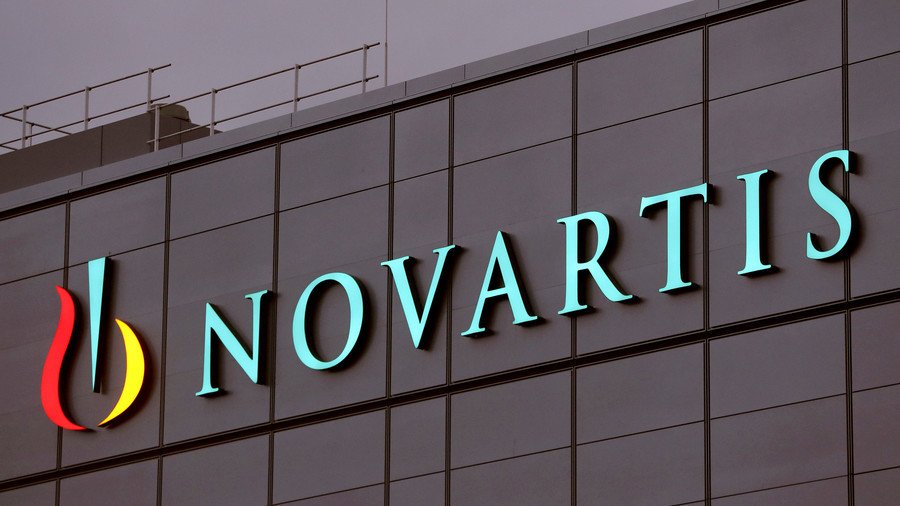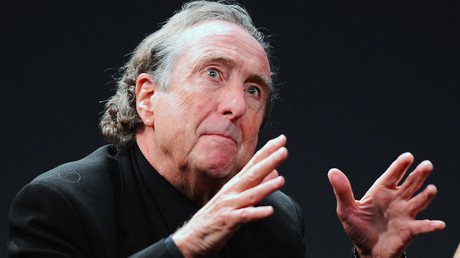Price-hiking pharma co. paid $1.2 mn to Trump’s lawyer for doing nothing

The disclosure that the pharmaceutical giant Novartis paid over $1 million to President Donald Trump’s lawyer Michael Cohen may not be a scandal Trump’s foes hope for, but it may help answer why drug prices are so high.
Novartis, AT&T and Korea Aerospace Industries were named as companies that had contracted Cohen’s consulting company by Michael Avenatti, the attorney for porn actress Stormy Daniels. Cohen reportedly paid Daniels $130,000 before the 2016 presidential election to keep quiet about an alleged affair with Trump a decade prior.
And now Novartis claims they hired Mr. Cohen for “healthcare” matters (they paid him approx $1 Million). Wow - he’s a doctor as well!! Very talented guy this Mr. Cohen. #basta
— Michael Avenatti (@MichaelAvenatti) May 9, 2018
What exactly did Cohen do in exchange? Nothing at all, apparently.
Novartis signed a year-long contract with Essential Consultants in February 2017, believing he could provide advice “as to how the Trump administration might approach certain US healthcare policy matters, including the Affordable Care Act,” the Swiss-based pharmaceutical company said.
After meeting Cohen in March, however, Novartis decided he would be “unable to provide the services” that the company had in mind, the company said on Wednesday. Yet they continued to pay him another $1 million through February 2018 because the contract could not be terminated. As Trump himself might say, that’s a terrible deal.
Lol. Novartis explanation 2.0. Hired Cohen to lobby trump, quickly realized he was dirty, kept paying so as not to get Trump mad. Good times. https://t.co/TNsgKyeMkB
— Josh Marshall (@joshtpm) May 9, 2018
Meanwhile, the company was raising the prices of two of its cancer medications, Gleevec and Arranon, far in excess of inflation, according to a study published last fall in the Journal of Clinical Oncology.
Led by Dr. Daniel Goldstein of Emory University in Atlanta, the study found a disproportionate increase in the price of cancer drugs approved since 1996. The price of Gleevec went from $26,000 in 2001 to $140,000 in 2017, while Arranon’s price increased by 55 percent (adjusted for inflation) from around $18,513 when it was launched, despite the availability of generics.
Some of Trump’s critics have suggested that Novartis paid Cohen for access to Trump, including the presence of the company’s CEO Vas Narasimhan at a dinner with the US president, on the sidelines of January’s World Economic Forum in Davos. Novartis explicitly denied that, however.
“Suggestions to the contrary clearly misrepresent the facts and can only be intended to further personal or political agendas as to which Novartis should not be a part,” the company said.
The anti-Trump #Resistance on Twitter was not convinced.
We will see if the bribe is big enough. And wondering what favor Novartis was looking for in its payoff to Cohen. Maybe they want to jack up the price on a drug %4,000. If they do that, Medicare needs to tell them to shove it and get a generic elsewhere. https://t.co/22mLTQuoNX
— janetmoulton (@menieux) May 9, 2018
Exactly how is that different from a bribe? Didn't Trump have dinner with the CEO of Novartis? Wasn't Trump all "omg, prescription drug prices are crazy. We are gonna change all that" before that dinner? Have you heard much about prescription drug prices since? I haven't! hmmm...
— Stephen Wicks (@WicksStephen) May 9, 2018
The news re Vekselberg/Novartis/Cohen/Stormy might be too complex for some to assimilate, so here’s the user-friendly bumper-sticker version: Consigliere Michael Cohen was the bag man for Fortune 500 and Kremlin bribes designed to move Trump’s policies their way.
— Laurence Tribe (@tribelaw) May 9, 2018
Hi @Novartis. I would be happy to provide you with healthcare policy information at a much more affordable price. I went to an accredited medical school and am a practicing physician. #PayToPlay#MichaelCohenhttps://t.co/QtmByaAbR7
— C Wesley Lindsey, MD (@DrWesLindsey) May 9, 2018
White House press secretary Sarah Huckabee Sanders was asked on Wednesday if Trump had taken any action to benefit Novartis, AT&T or Korea Aerospace.
“Not that I’m aware of,” she replied.
Special Counsel Robert Mueller’s investigators talked to Novartis about the contract back in November 2017, the company said, adding that it “considers this matter closed.”
A smart person I know described the AT&T and Novartis payments to Cohen as part of massive push by Trump associates in 2017 to cash in on corporations desperately trying to figure out Trump world and its pecking order.
— Ben White (@morningmoneyben) May 9, 2018
One possible explanation for corporations shelling out so much money for no tangible return was that they were trying to buy information about the inner workings of the Trump White House. The lobbying payments would be considered the cost of doing business - and passed on to the consumers.
Like this story? Share it with a friend!














